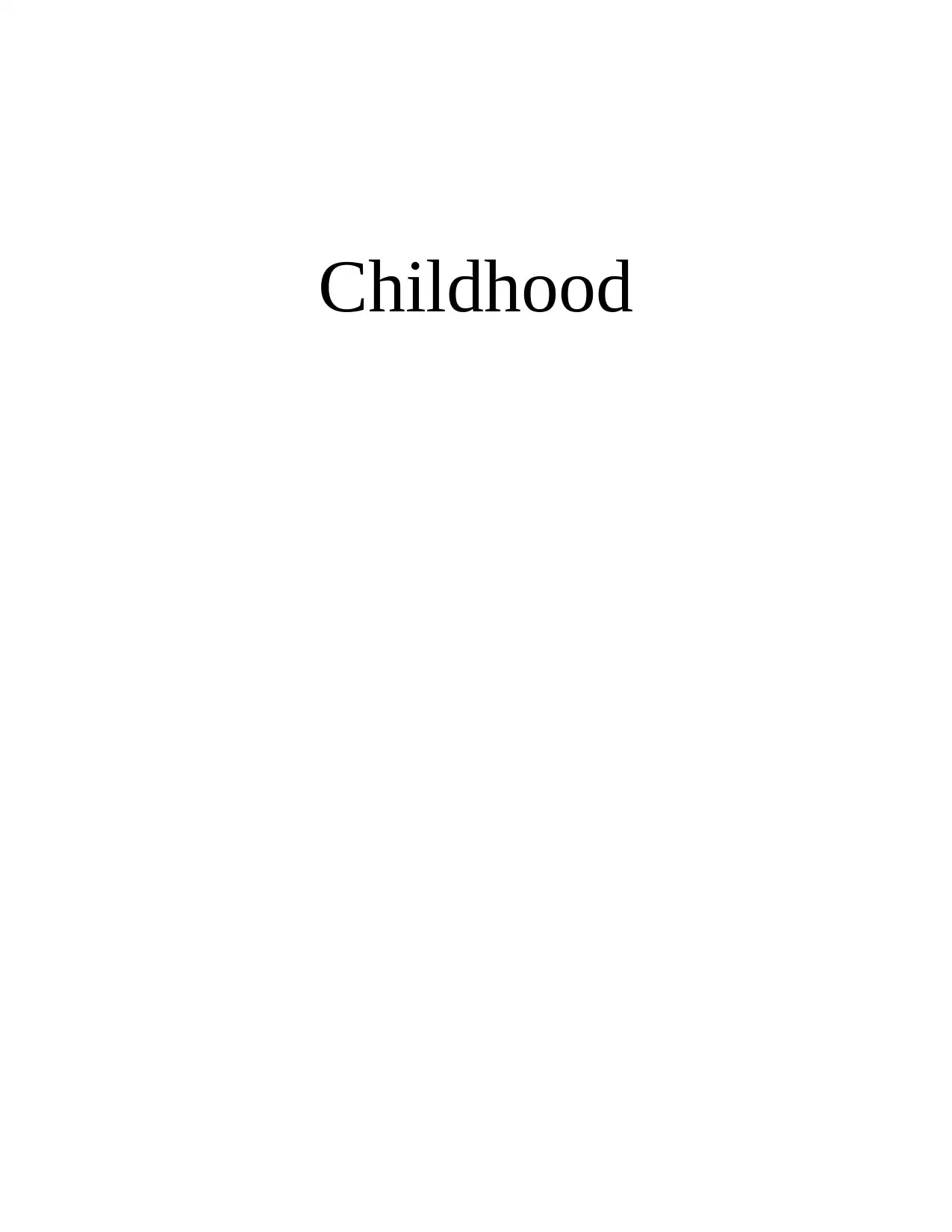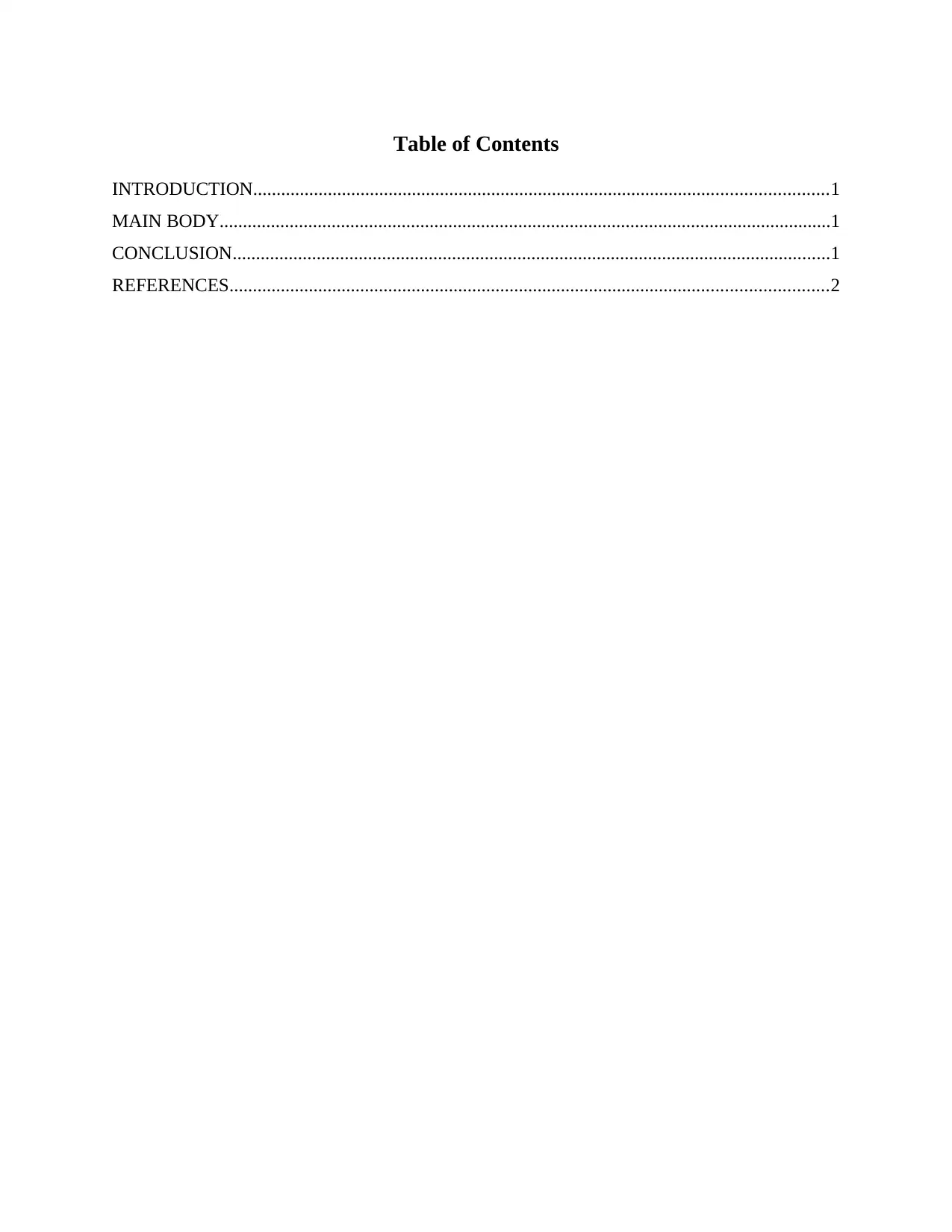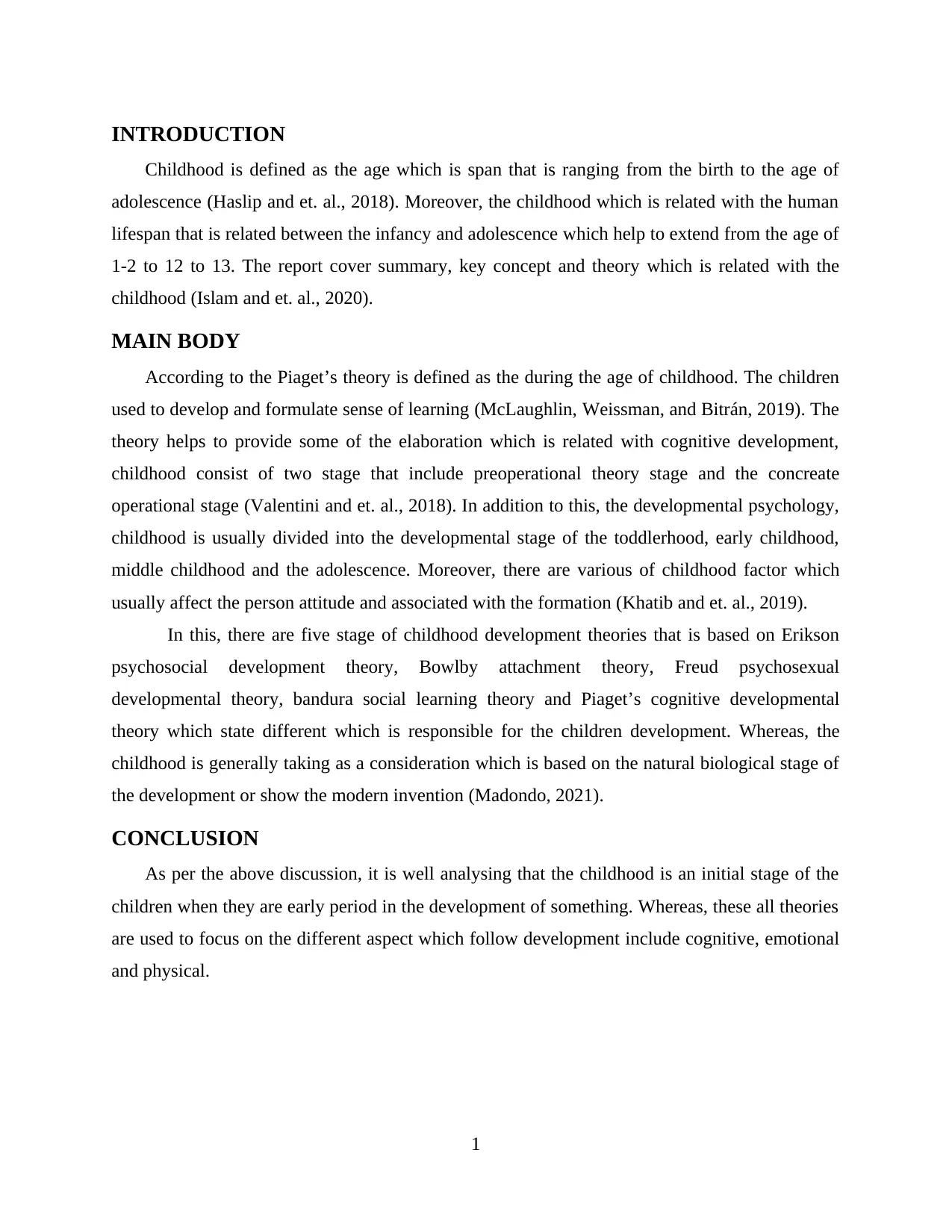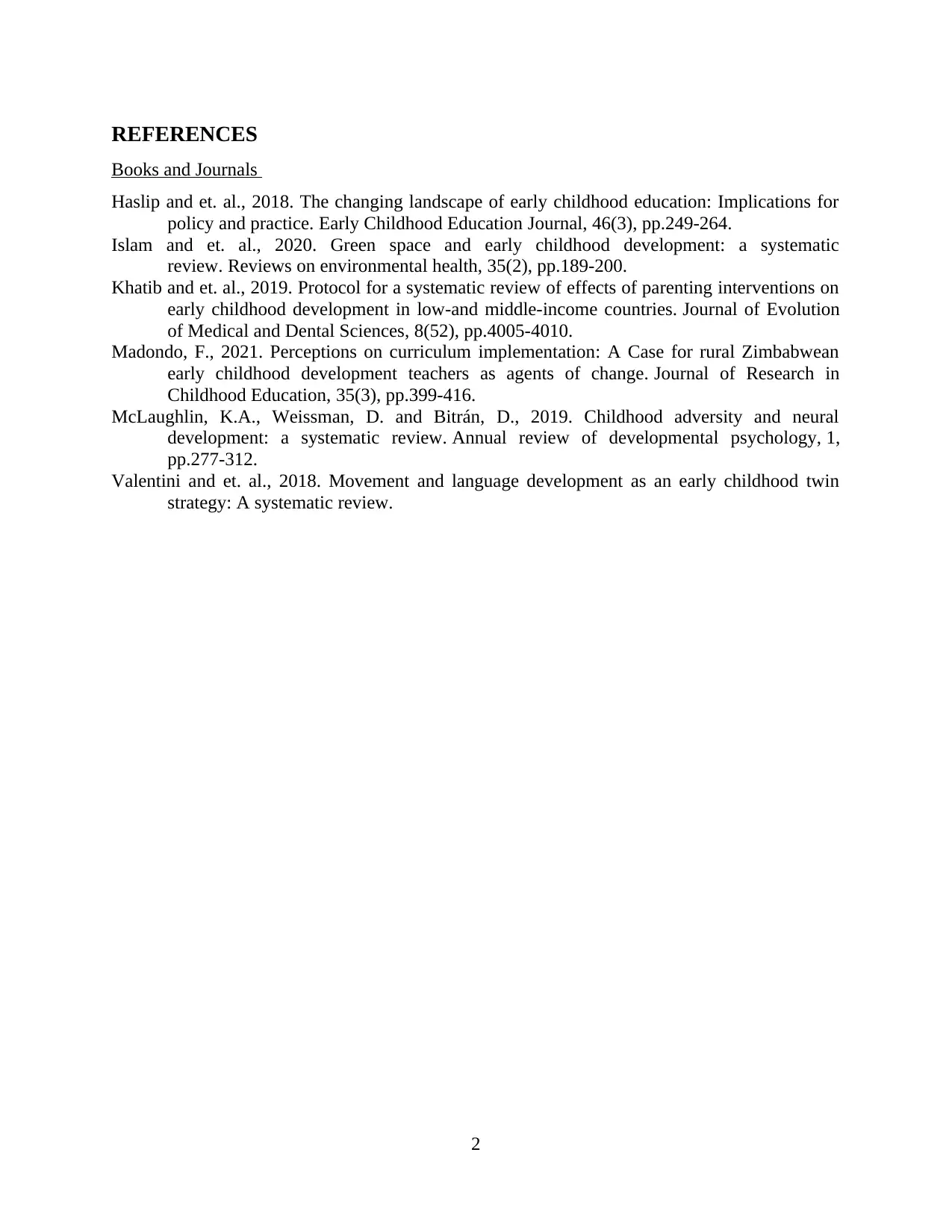FY008 Ways of Learning: Exploring Childhood Development Theories
VerifiedAdded on 2023/06/14
|4
|594
|258
Essay
AI Summary
This essay provides an overview of childhood, defining it as the period from birth to adolescence, and examines key theories related to child development. It discusses Piaget's theory, which focuses on cognitive development during childhood, highlighting the preoperational and concrete operational stages. The essay also touches upon developmental psychology's division of childhood into toddlerhood, early childhood, middle childhood, and adolescence. Furthermore, it explores the impact of various factors on a child's attitude and formation, referencing Erikson's psychosocial development theory, Bowlby's attachment theory, Freud's psychosexual developmental theory, Bandura's social learning theory, and Piaget's cognitive developmental theory. The conclusion emphasizes that childhood is a crucial stage for development, with theories focusing on cognitive, emotional, and physical aspects, while also referencing the Children’s Act 1989.
1 out of 4











![[object Object]](/_next/static/media/star-bottom.7253800d.svg)